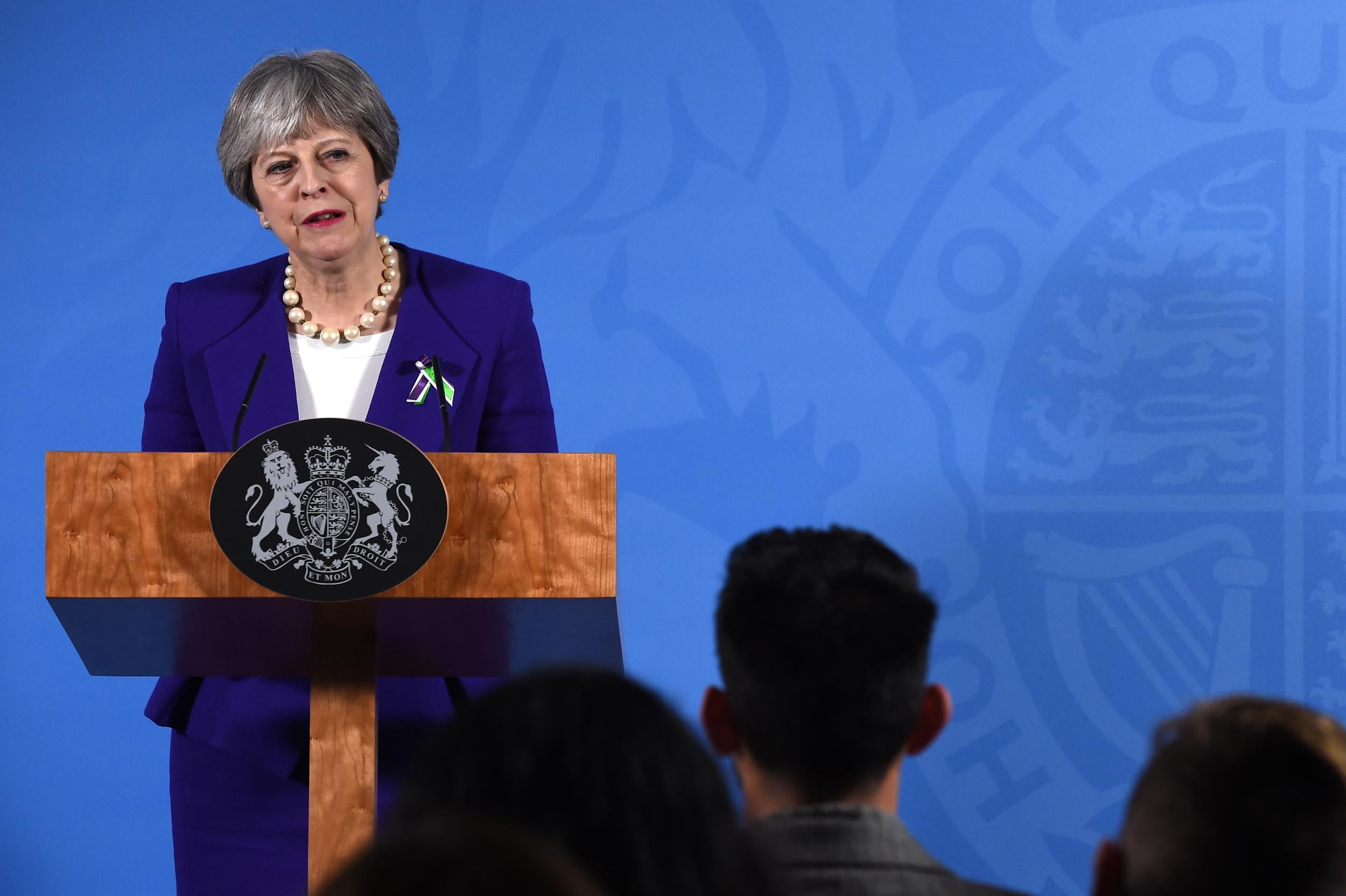Theresa May tells women with political ambition to 'be yourself' and resist male stereotypes
PM delivers speech in Manchester to mark the centenary of women’s suffrage

Your support helps us to tell the story
From reproductive rights to climate change to Big Tech, The Independent is on the ground when the story is developing. Whether it's investigating the financials of Elon Musk's pro-Trump PAC or producing our latest documentary, 'The A Word', which shines a light on the American women fighting for reproductive rights, we know how important it is to parse out the facts from the messaging.
At such a critical moment in US history, we need reporters on the ground. Your donation allows us to keep sending journalists to speak to both sides of the story.
The Independent is trusted by Americans across the entire political spectrum. And unlike many other quality news outlets, we choose not to lock Americans out of our reporting and analysis with paywalls. We believe quality journalism should be available to everyone, paid for by those who can afford it.
Your support makes all the difference.Theresa May has told women aspiring to enter politics that they should not seek to be a “stereotype of a man” to reach the top, as she delivered a keynote speech to mark the centenary of the first women winning the right to vote.
Speaking in Manchester – the birthplace of the suffragette leader Emmeline Pankhurst – the Prime Minister told women they had to be themselves to achieve the heights of power in both politics and business.
Asked what advice she would give to aspiring female politicians in 2018, Ms May said: “As I said in my speech, women do often approach... their way of doing politics is sometimes different from men, it’s the same in business as well, but that doesn’t mean it’s not just as good, and it is just as good.
“So I would say be yourself, don’t feel you have to be a sort of stereotype of a man in order to get on in politics. Be yourself and believe in what you’re doing.”
Margaret Thatcher’s “iron lady” reputation often saw her depicted in a masculine way – she was once referred to by the former US President Ronald Reagan as “the best man in England”.
But despite her breaking through the glass ceiling and becoming the prime minister, representation of women in politics has only steadily increased. After the 2017 snap general election the number of women MPs increased from 191 to 208 – 32 per cent of the total make-up of politicians in the Commons.
Ms May added: “I think the important thing for a woman in politics, I would say, is be yourself, actually.”
Referring to earlier comments from Amber Rudd that she would “take a look” at giving pardons to women who were jailed while fighting for the right to vote, Ms May agreed with the Home Secretary that the issue “isn’t quite as straightforward as seems”.
But, she added: “I think what we want to ask ourselves is how should we best honour the suffragettes and recognise what they went through and what they did and I think the best way we can do that is by ensuring that we encourage more women to come into public life and that we see more women in Parliament.”

The Prime Minister’s comments came following an announcement from Jeremy Corbyn that a Labour government would apologise to the suffragettes and overturn their criminal records.
Hailing the 1918 Representation of the People Act – the landmark legislation that gave some women over 30 the right to vote in parliamentary elections for the first time – Ms May said it was a “great expansion of democratic participation”.
“Gender equality at the ballot box was not achieved for another 10 years,” she said. “But with the 1918 act, the die was cast.”
Earlier on Tuesday Ms May also told BBC Radio 4’s Woman’s Hour that some women could be put off taking part in public life due to bullying and harassment on social media, adding there is an increase in an “aggressive attitude in politics”.
“This is across the political spectrum,” she said. “You know, in my party Esther McVey has particularly suffered from this, but Luciana Berger on the Labour benches has suffered from this.”
The Prime Minister also used her speech to announce a review into the sustainability of the British press in the increasingly challenging environment of declining revenues in order to ensure high-quality journalism survives.
She told the audience in Manchester: “A free press is one of the foundations on which our democracy is built, and must be preserved.
“It will look at the different business models for high-quality journalism,” she added. “And because digital advertising is now one of the essential sources of revenue for newspapers, the review will analyse how that supply chain operates.
“It will consider whether the creators of content are getting their fair share of advertisement revenue.”
Join our commenting forum
Join thought-provoking conversations, follow other Independent readers and see their replies
Comments